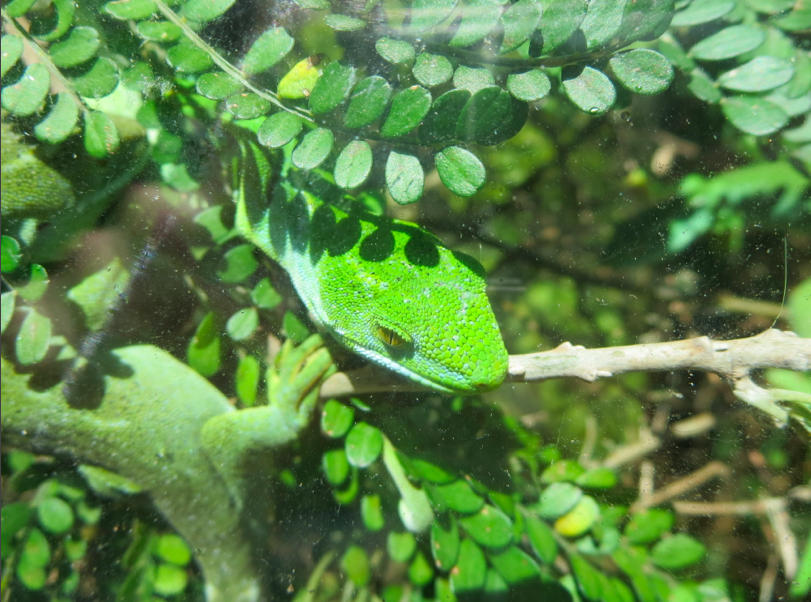Zealandia.
This was an eye opener.
New Zealand is famous for being beautiful. It’s fabled land
is filled to the brim with jagged mountains, pristine forests, crystal clear
lakes. Every evening the sunset is unbelievably beautiful and everywhere you
look there is a sight to take your breath away.
At least, that’s what I thought it was. And I think that’s
how most Americans think it is: Beautiful, pristine, untouched.
Nothing could be farther from the truth.
Until 800 years ago, when humans first arrived, New Zealand
did not have any native land mammals except a some bats. They only had native
plants, birds, and insects.
 |
| Tuatatara. Often referred to as a "living dinosaur." It's not an actual dinosaur, but was around at the time |
Enter the humans and things start going downhill really
fast. New animals are introduced. Land is cleared and burned and used for
agriculture or livestock. Animals are hunted to extinction. The land starts to
become irrecoverably changed.
It’s been a hard 800 years. Things have been lost and
destroyed. Some things broken that can never be fixed. And you can see it.
There are vast tracks of land that just disappoint, all paddock, dotted with
sheep or cows, and yes that’s cute, but when you think about what used to be
there…there’s no compare.
 |
| Green gecko. One of the most beautiful little creatures I've ever laid eyes on. |
Livestock and industry have polluted waterways. Marine
animals are only just starting to recover from the massacre caused by whaling
and sealing. All a manner of introduced mammals reek havoc on vegetation and
bird populations.
Zealandia is trying to right some of those wrongs. It’s just
one of several sanctuaries around NZ. And there are a lot of reserves, but
Zealandia is wonderful because it’s so accessible and really allows people to
get involved and educated about why and what it’s trying to do.
 |
| The valley where Zealandia is located |
Built in a valley where Wellington used to get their main
source of water before growing too big for the little river to support all
those people, Zealandia has a pretty large block of land that it is trying to
completely restore. It hopes that eventually this land will resemble the land
that used to be there 800 years ago, filled with the birdlife and buglife that
used to be there as well.
How long will that take? A long, long time. Zealandia has a
500 year plan.
Five hundred years.
Can you imagine starting out a project like this, and
looking into the future, not knowing if it will ever go as far as you wish?
Can you imagine starting off in year 1 of 500?
I can’t. Not really.
Conservation and restoration is hard. It’s grueling and unforgiving and it takes years to see any progress. And there’s
always the worry that the project might not be able to continue. Funding might
get lost, volunteers scarce…
Walking through the reserve, looking at the bird Zealandia
had re-introduced and learning about Zealandia’s success stories of the last
few years and hopes and dreams for the future, I was reminded why I’ve been so
interested in conservation and r
 |
| Takahe. One member of the only pair Zealandia has. |
I’d known that statistic say that gap year students come
back home with a surer sense of what they want to study. They come back more
focused and determined and prepared.
I expected that that would not apply to my. I thought I’d come back with all sorts of things I
wanted to pursue, unable to choose. I mean, yes, there are so many things I’d
love to learn about.
But New Zealand has done a great job of reminding me why I
love the things I love, why I want to do the things I’ve been telling people.
Why I want to pursue what many people consider two drastically different
things.
No comments:
Post a Comment